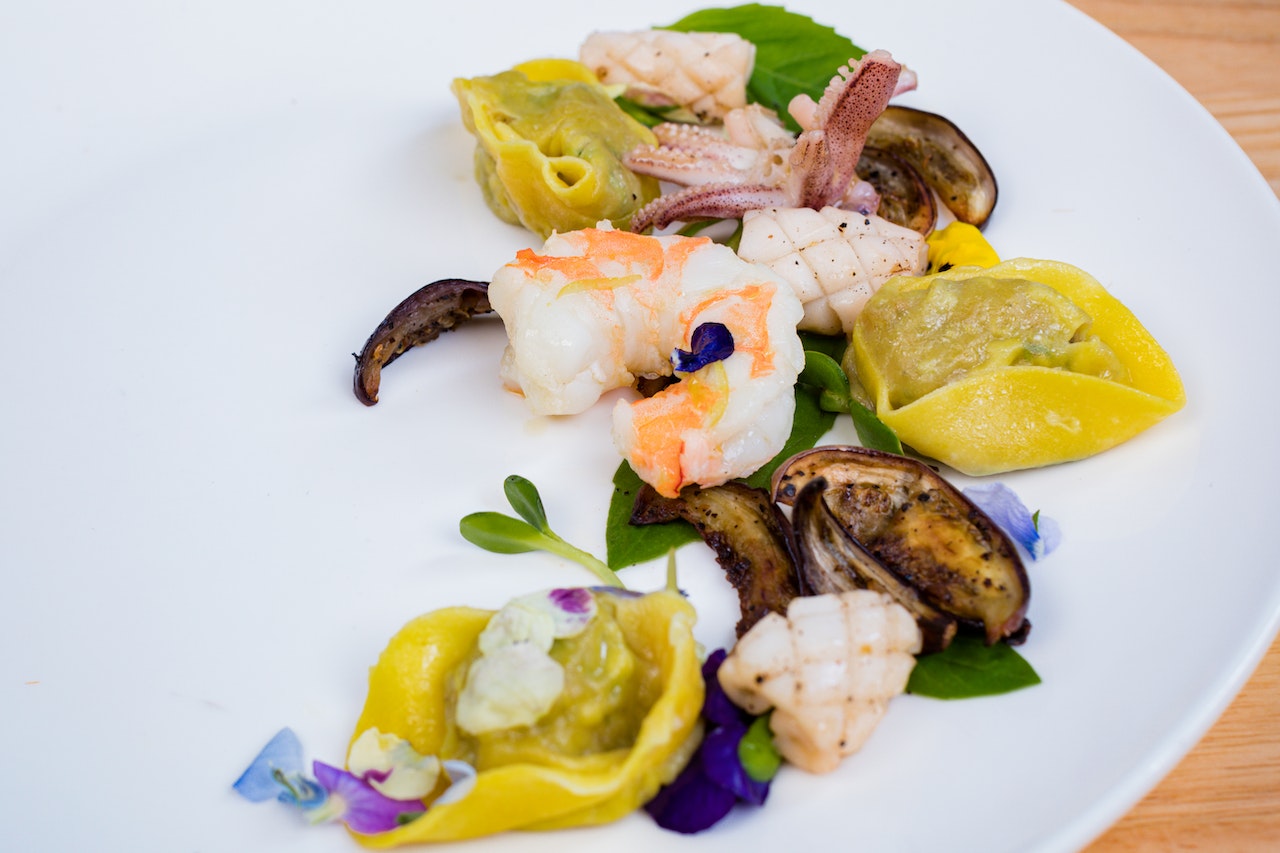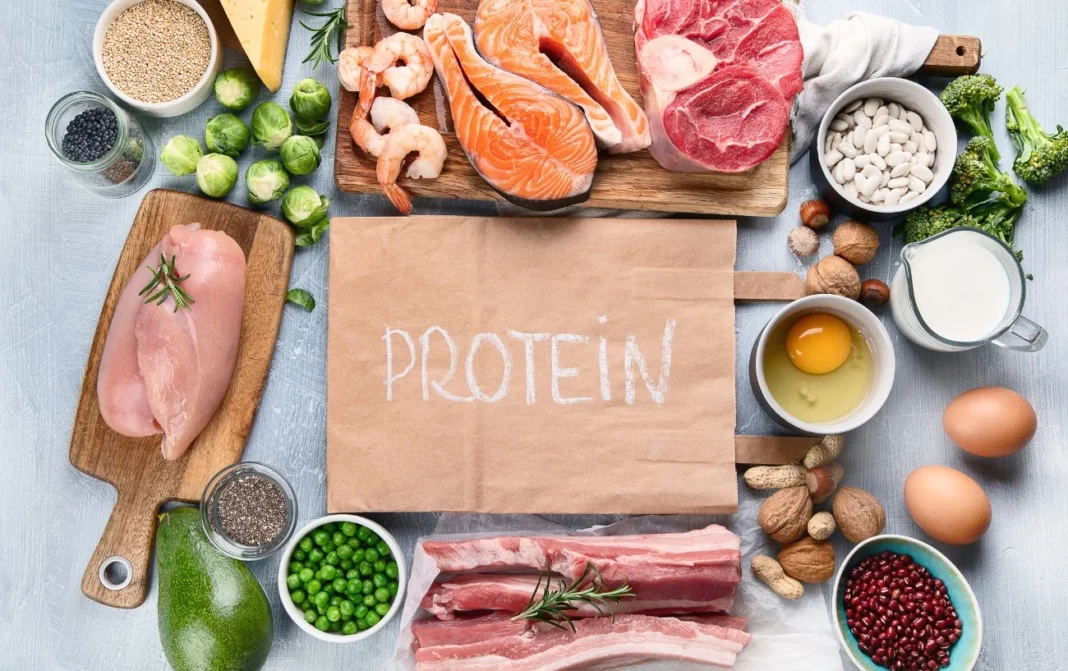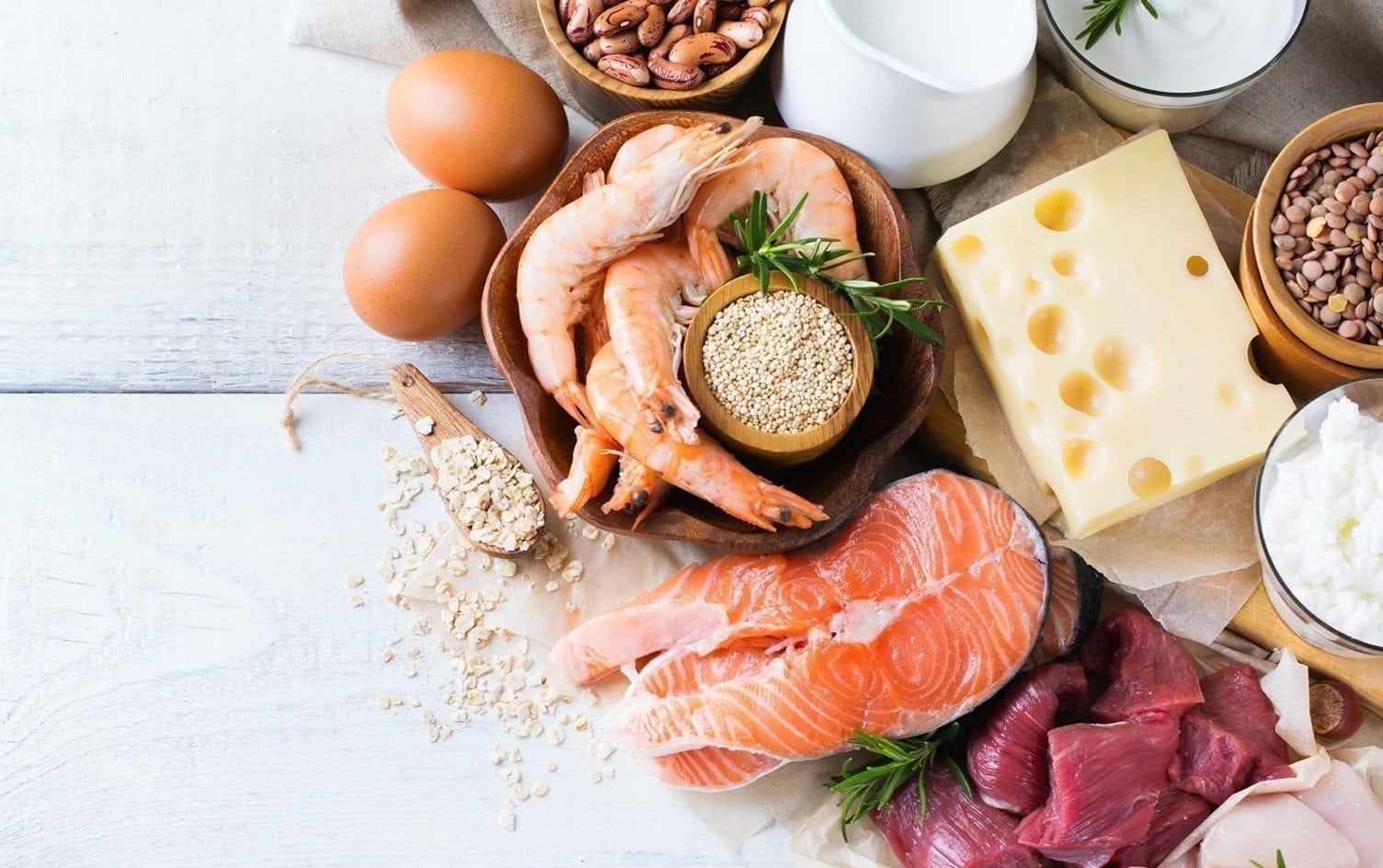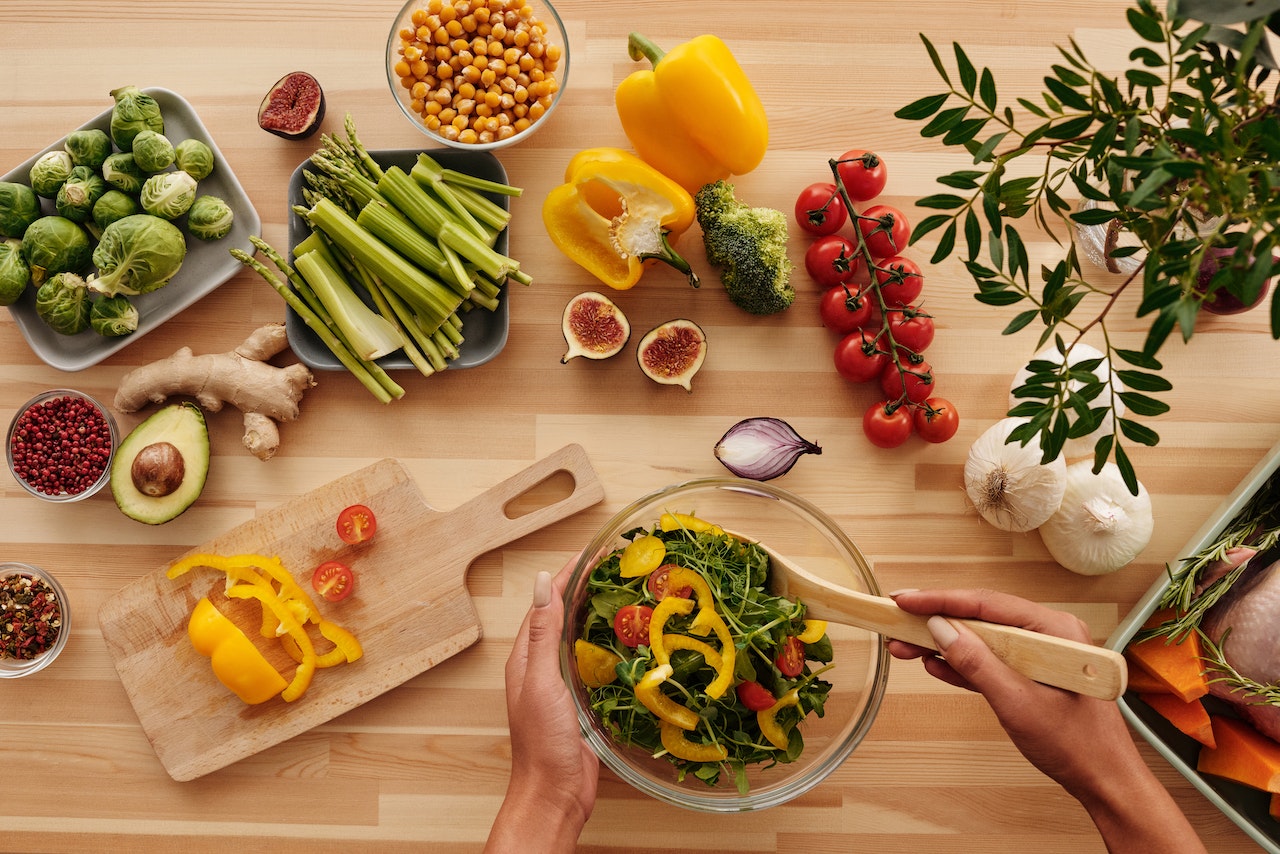A healthy diet rich in protein is essential for the correct operation of numerous bodily systems. Amino acids, which make up proteins, are either produced by the body or are exclusively obtained through diet.
In this article, we’ll explore some of the top high protein foods. Whether you’re a carnivore or vegetarian, there’s bound to be something on this list that appeals to you. So sit back, relax, and let’s take a journey through the diverse world of protein cuisine.
Protein is a crucial component of our diets. It helps build and repair muscles, supports healthy immune function, and keeps us feeling full and satisfied.
Those who are pregnant, young adults, and toddlers in particular require protein for growth. It is advised that people obtain their protein from a range of plant and animal sources, such as fish, eggs, beans, almonds, soy products, and lean meat and poultry.
Here is your comprehensive list of high protein foods, along with simple recipe ideas to help you put them into practice, if your goal is to boost your consumption of the greatest sources of protein for weight reduction and muscle building. Because they are all low in carbohydrates and strong in protein, you can indulge without reversing your progress.
Fortunately, there are plenty of tasty ways to get your daily dose. From hearty stews made with beans or meat to savory soups featuring fish or chicken, we have compiled something for everyone’s taste buds.
Animal-Based High Protein Foods
When it comes to high protein foods, animal-based options are plentiful. In fact, according to a list of high protein foods, many of the top sources come from animals such as cows, goats, and poultry.
For example, beef is one of the most popular protein foods. It contains all nine essential amino acids and can be found in dishes like spicy grilled meat or pepper soup. Similarly, goat meat is also widely consumed for its high protein content and rich flavor.
Poultry products like chicken and eggs are other excellent choices for those seeking animal-based high protein foods. Chicken can be prepared in various ways including fried or stewed while boiled eggs make for a quick and easy snack on the go.
While animal-based high protein foods may be more commonly known, there are still plenty of plant-based options available that pack just as much nutritional punch. But first, let’s take a closer look at these delicious animal proteins that have been fueling for generations.
Plant-Based High Protein Foods
Are you tired of relying on animal-based protein sources for your daily meals? Fear not! There are plethora of plant-based high protein foods that can satisfy all your dietary needs. From lentils to quinoa, here are some options to consider.
Firstly, legumes such as beans and peas, are excellent sources of plant-based proteins. For instance, black-eyed beans contain around 24g of protein per cup while green peas have about 8g in the same serving size. Lentils also provide an impressive amount of protein – one cup cooked contains approximately 18g. These versatile ingredients can be used in soups, stews, salads or even blended into dips like hummus.
Secondly, nuts and seeds offer substantial amounts of protein and healthy fats. Almonds are packed with essential nutrients and boast up to 6g of protein per quarter-cup serving. Chia seeds have been gaining popularity due to their numerous health benefits including omega-3 fatty acids and antioxidants. They contain roughly 5g of protein per ounce (28 grams). Other noteworthy mentions include pumpkin seeds and hemp hearts which both pack over 9g of protein per quarter-cup serving.
Lastly, whole grains like brown rice and quinoa should not be overlooked when seeking high-protein food options. Quinoa is known as a superfood because it contains all nine essential amino acids, making it a complete source of protein; one cup cooked provides about 8g. Brown rice may seem plain, but it’s worth noting that one cup cooked yields almost 5g of protein, along with fibre and other vital micronutrients.
– Chickpeas: A single cup gives you nearly half the recommended daily intake
of dietary fiber.
– Peanuts: Half a cup will give you more than enough niacin (vitamin B3) for the day.
– Oats: One packet contains at least five grams of dietary fiber.
– Tofu: Half a cup of tofu can give you 10 grams of protein.
With these high protein plant-based foods, there’s no need to worry about meeting your daily nutritional needs.
High Protein Snacks And Beverages
Looking for high protein snacks and beverages? You’re in luck! There are plenty of options to choose from that can keep you satiated while helping you meet your daily protein requirements.
First up, we have nuts. Whether it’s almonds, cashews, or peanuts, these little powerhouses pack a punch when it comes to protein content. They also make for a great on-the-go snack option that you can easily carry around with you throughout the day.
If nuts aren’t your thing, consider trying out some Greek yogurt. Not only is it high in protein, but it also contains probiotics that are good for gut health. You can mix in some fresh fruit or granola for added flavor and texture.
Another tasty option is hummus paired with veggie sticks or pita chips. Chickpeas are an excellent source of plant-based protein and fiber, making them a satisfying snack choice. Plus, the combination of flavors and textures will leave you feeling satisfied without weighing you down.
Looking for more vegan-friendly, high-protein alternatives? Keep reading to discover even more delicious options!
Vegan-Friendly High Protein Alternatives
Looking for high protein alternatives that are vegan-friendly? You’re not alone! More and more people are turning to plant-based diets, whether it be for health reasons or out of concern for animal welfare. Fortunately, there are plenty of options available.
One great source of protein is legumes. Peas, beans, lentils, and chickpeas all contain high amounts of protein while also being rich in fiber and other important nutrients. They can be used in a variety of dishes such as stews, soups, salads, and even baked goods like brownies (made with black beans!).
Nuts and seeds are another excellent source of protein. Almonds, pumpkin seeds, chia seeds, and hemp seeds all pack a powerful nutritional punch. You can add them to smoothies or oatmeal for breakfast or sprinkle them on top of your favorite salad for an extra crunch. Tahini (a paste made from sesame seeds) is also a tasty way to get some additional protein into your diet-try spreading it on toast or using it as a dip for veggies.
Incorporating these vegan-friendly high protein foods into your meals doesn’t have to be difficult! By swapping out meat for legumes or adding nuts and seeds to your snacks and dishes, you’ll be well on your way to meeting your daily protein needs without sacrificing flavor or nutrition.
Incorporating High Protein Foods Into Meals
Are you looking to incorporate more high protein foods into your meals? Well, good news for you! Nigeria has a variety of delicious and nutritious options that can easily be added to your daily diet. Here are some tips on how to make the most out of these high protein foods.
Firstly, start by incorporating eggs into your breakfast routine. Not only are they cheap and easy to cook, but they also contain six grams of protein per egg. You can boil them, fry them or even add them into soups for an extra boost in protein. Another great option is beans which come in different varieties such as black-eyed peas, kidney beans and chickpeas. They not only provide a substantial amount of protein but also fiber which makes them filling and satisfying.
Secondly, when preparing dishes like stews or sauces, consider adding lean meats like chicken or turkey instead of red meat. These meats have lower levels of saturated fats while still providing up to 25 grams of protein per serving. Additionally, fish like salmon or mackerel are rich in omega-3 fatty acids which promote heart health and brain function whilst being excellent sources of protein.
Lastly, switch up your snacks with nuts like peanuts or almonds that contain between 6-8 grams of protein per ounce. Alternatively, yogurt is both refreshing and provides around 10 grams of protein per cup. And if you’re feeling adventurous, try making smoothies using Greek yogurt as the base which contains twice as much protein compared to regular yogurts!
By incorporating these high-protein foods into your meals, not only will you feel fuller for longer periods but also reap the benefits from their nutrient-rich profiles. So why not give it a try today? Your body will thank you for it!
List Of 50 High Protein Foods
Here are the compiled list of foods that are high in protein:
Animal Base Protein Foods.
- Pork Meat
- Cow Milk
- Dried Crayfish
- Yogurt
- Beef
- Egg (White part)
- Cheese
- Antelope
- Goat Meat
- Turkey
- Fish(Scumbia, Shiny, Croaker)
- Salmon
- Milk
- Ham
- Ram Meat
- Quil
- Beef
- Rabbit
- Tuna
- Shrimp
- Edible Worms
- Duck Meat
- Crabs
- Rabit
- Prawns
- Snail
- Kefir (Fermented Milk)
Plant Base Protein Foods.
- Broccoli
- Millet
- Soybeans
- Groundnuts
- Cowpea
- Chia Seed
- Quinoa
- Spirulina
- Soya milk
- Locust Beans
- Wheat
- Hemp seeds
- Lentils
- Green Pea
- Chickpea
- Tofu
- Peanut Butter
- Quaker Oat
- Potatoes
- Guinea Corn
- Cashew Nut
- Walnut
- Pumpkin Seed
Frequently Asked Questions
What Is The Recommended Daily Protein Intake Fors?
It is a well-known fact that protein is an essential nutrient for our bodies, especially for building and repairing muscles. However, the recommended daily intake of protein varies based on factors such as age, gender, weight, and activity level., where food security remains a major concern, it is crucial to understand how much protein one needs to consume daily.
According to the Food and Nutrition Research Institute (FNRI), the recommended dietary allowance (RDA) for protein in adults is 0.8 grams per kilogram of body weight per day. For example, if you weigh 70 kilograms, your RDA would be around 56 grams of protein per day. However, this value may vary depending on individual circumstances such as pregnancy or lactation. It’s worth noting that athletes and people with physically demanding jobs may require more protein than sedentary individuals.
An interesting statistic shows that mosts do not meet their daily protein requirements due to poverty and limited access to high-protein foods like meat products. A study published in the Journal of Physiological Sciences showed that only about half of adults consumed enough dietary protein based on WHO recommendations(1). This emphasizes the need for policymakers to provide affordable sources of high-quality proteins such as fish and beans.
In conclusion, knowing the right amount of protein one needs daily can help maintain good health and prevent diseases related to malnutrition. While there are several good sources of high-protein foods available, like eggs, chicken, fish, soybeans, etc., many people still struggle to meet their nutritional needs. Therefore, promoting awareness about proper nutrition habits amongs should remain a priority for public health officials and advocates alike.
Are There Any High Protein Foods That Should Be Avoided Due To Health Concerns?
When it comes to high-protein foods, there are certainly plenty of options available. However, not all sources of protein are created equal and some may come with health concerns that should be taken into consideration.
One such food is red meat, which is often touted as a good source of protein but can also have negative health effects when consumed in excess. For example, studies suggest that consuming too much red meat could increase the risk of heart disease and certain cancers. Therefore, it’s recommended to limit the intake and opt for leaner cuts whenever possible.
Another potential concern when it comes to high-protein foods is processed meats like sausages and bacon. These types of meats tend to be higher in fat and sodium than other forms of protein, which could contribute to various health issues over time. As with red meat, moderation is key – it’s okay to indulge occasionally but making them a regular part of your diet isn’t advisable.
In general, while high-protein foods can offer numerous benefits for overall health and wellness, it’s important to be mindful about what you’re eating and how much. By incorporating a variety of different proteins into your meals (including plant-based options), limiting processed or fatty meats, and keeping an eye on portion sizes, you can help ensure that you’re getting the most out of your diet without putting unnecessary strain on your body.

Can High Protein Foods Help With Weight Loss?
Have you been struggling to lose weight? Have you considered incorporating high protein foods into your diet? Contrary to popular belief, a high protein diet can actually aid in weight loss. This is because protein has the ability to keep you feeling full for longer periods of time.
Coincidentally, many high protein foods are readily available and commonly consumed. These include beans, peanuts, eggs, fish, chicken and beef. Incorporating these foods into your meals can help increase satiety levels and reduce overall caloric intake throughout the day.
However, it’s important to note that simply increasing protein intake alone may not lead to significant weight loss. It’s crucial to maintain a balanced diet with regular exercise as well. Additionally, some high protein foods like red meat should be consumed in moderation due to potential health concerns such as heart disease.
TIP: Experiment with different recipes using high protein ingredients for a delicious and satisfying meal plan. Remember that sustainable weight loss takes time and effort but making small changes like incorporating more high protein foods can make a big difference in achieving your goals.
How Can Individuals With Dietary Restrictions, Such As Gluten Intolerance Or Lactose Intolerance, Incorporate High Protein Foods Into Their Diet?
Did you know that approximately 1 in 133 people worldwide suffer from celiac disease, a type of gluten intolerance? For those with dietary restrictions such as gluten or lactose intolerance, it can be challenging to find high protein foods that fit within their dietary needs. However, incorporating these essential nutrients into your diet is crucial for optimal health and wellness.
Here are four ways individuals with dietary restrictions can incorporate high-protein foods into their diet:
- Lean meats: poultry, fish, and lean cuts of beef or pork are excellent sources of protein.
- Legumes: beans, lentils, chickpeas, and peas are all naturally gluten-free and provide an ample amount of protein.
- Nuts and seeds: almonds, chia seeds, flaxseeds, pumpkin seeds, and sunflower seeds are all great choices that also offer healthy fats.
- Non-dairy options: soy milk, tofu, tempeh (made from fermented soybeans), and nut-based cheeses like almond or cashew cheese can help meet daily protein requirements.
Incorporating more high-protein foods into the diet not only helps individuals maintain and build muscle mass but also keeps them feeling fuller longer throughout the day. With so many delicious options available to choose from, even those with dietary restrictions can enjoy a balanced diet rich in protein without sacrificing taste or nutrition.
Making small changes like swapping out dairy products for non-dairy alternatives or opting for legumes instead of wheat-based grains like pasta or bread can make a significant impact on overall health and well-being. So why not start today by trying one new high-protein food item that fits your dietary needs? Your body will thank you!
Are There Any Cultural Or Regional Variations In The Availability And Consumption Of High Protein Foods?
Nigeria is known for its rich culinary culture and diverse cuisine, which often includes a variety of high-protein foods. However, the availability and consumption of these foods may vary based on cultural or regional differences. For example, in northern Nigeria, dishes like tuwo shinkafa (rice pudding) and miyan kuka (baobab leaf soup) are popular sources of protein.
On the other hand, southern Nigeria has a strong emphasis on seafood as a source of protein. Fish such as mackerel, tilapia, and catfish are commonly used in soups and stews like pepper soup or afang soup. Additionally, beans and legumes are widely consumed across all regions of Nigeria and provide an excellent source of vegetarian protein options.
While high protein foods can be found throughout Nigeria, there may be some variations depending on dietary restrictions or preferences. For instance, individuals with lactose intolerance may opt for plant-based proteins like nuts or tofu instead of dairy products like yogurt or cheese. Similarly, those with gluten intolerance can choose to incorporate quinoa or buckwheat into their meals instead of wheat-based grains.
Overall, cuisine offers a wide range of delicious high-protein options that cater to various dietary needs and preferences. From traditional meat dishes to vegetarian-friendly bean stews and nutty snacks – there’s something for everyone!
Conclusion
In conclusion, incorporating high protein foods into your meals can be easy and delicious. Whether you prefer animal-based or plant-based options, there are plenty of choices available to help boost your daily protein intake. And if you’re looking for vegan-friendly alternatives, there are still many great options.
So why not try adding some beans to your next stew, snacking on some peanuts throughout the day, or enjoying a glass of milk with your meal? By making small changes like these, you could start feeling more energized and satisfied throughout the day. Remember, taking care of our bodies is important, and finding ways to incorporate nutrient-rich foods into our diets can make all the difference. So let’s embrace the power of protein and fuel ourselves with delicious and nutritious food!





